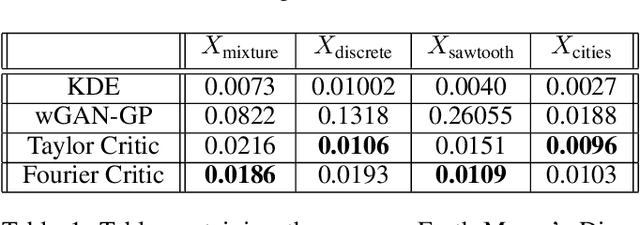Summable Reparameterizations of Wasserstein Critics in the One-Dimensional Setting
Paper and Code
Sep 19, 2017



Generative adversarial networks (GANs) are an exciting alternative to algorithms for solving density estimation problems---using data to assess how likely samples are to be drawn from the same distribution. Instead of explicitly computing these probabilities, GANs learn a generator that can match the given probabilistic source. This paper looks particularly at this matching capability in the context of problems with one-dimensional outputs. We identify a class of function decompositions with properties that make them well suited to the critic role in a leading approach to GANs known as Wasserstein GANs. We show that Taylor and Fourier series decompositions belong to our class, provide examples of these critics outperforming standard GAN approaches, and suggest how they can be scaled to higher dimensional problems in the future.
 Add to Chrome
Add to Chrome Add to Firefox
Add to Firefox Add to Edge
Add to Edge